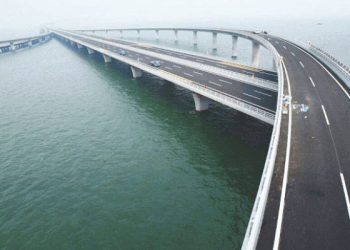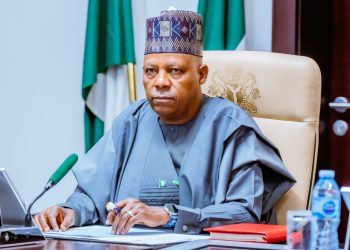Plummeting crude oil prices in the international market appear to have hit the country below the belt for its mismanaged one-product economy. Nigeria depends on oil for over 90 per cent of its export revenue, according to the Organisation of Petroleum Exporting Countries. Over the years, we have remained adamant to warnings by those worried sick by such a downright perilous, in fact, irresponsible national economic template. On November 13, a barrel of oil sold for $72.2, quite below the $77.5 per barrel benchmark on which the 2014 budget is predicated, which is indicative of the fact that the ogre has, indeed, come.
But the fall in prices is not precipitous. The signals have been beaming at us for a long time. Not even the performance of the budget in the first quarter of this year, could nudge the country into a late redemptive drive. However, oil prices had averaged $111.66 per barrel in the second quarter of this year.
A report from the Budget Office on the first quarter budget performance showed a loss of N762.79 billion in anticipated revenue. Out of this figure, oil revenue shortfall was N580.62 billion, a development attributed to oil theft and lower quantity of oil available for lifting. But the report added, “…only Value Added Tax of N213.8 billion exceeded its quarterly estimate of N211.36 billion by N2.44 billion (or 1.15 per cent).”
These are valid grounds for concern. While in Lagos at an event the other week, the Minister of Finance, Ngozi Okonjo-Iweala, bemoaned the crash in oil prices, and warned that African economies, especially those in the sub-Saharan region, were in danger as commodity prices shaped their survival. Confirming fears that the economy is already like a fish out of water, Okonjo-Iweala rolled out a raft of feeble economic measures last week to deal with the crude oil price fall. These include the downward review of crude oil benchmark in the 2015 budget from $78 to $73 per barrel; moratorium on foreign trips and training by civil servants; and new tax on luxury goods such as private jets, yachts and champagne. And with magisterial finality, our Finance Minister declared: “This economy has to stop talking about oil.”
But a nervous jump from oil to non-oil revenue regimen without a solid base is bound to be wobbly. Only far-reaching measures will endure. With its huge capacity for job creation, agriculture that bore the development burden of the regions in the First Republic is still relegated to the background. This is evident in the latest sectoral contributions to the economy from the National Bureau of Statistics data. It states that “agriculture constituted the smallest sector in the Second Quarter,” representing just 20.89 per cent of the Gross Domestic Product.
The key issue is: the United States’ discovery of shale oil, which led it to totally shun Nigeria’s oil, the emergence of new players in the market such as Ghana, Angola and Chad, volatility of the market, international conspiracy, and the quest for alternative energy sources in Europe, ought to have informed a new economic policy for the country long before now. A November 2014 report on America’s Oil and Natural Gas Industry says America is producing over 60 per cent more oil than it did in 2008. By 2015, the International Energy Agency predicts that the US will surpass Saudi Arabia and Russia to be the world’s top crude oil producer.
Besides, our government has been most profligate, unaccountable and corrupt in the use of public funds. While other oil-rich nations have used their revenues to develop their infrastructure, deepen their economies or diversify and save enough for the rainy day, ours is rapidly being stolen by a rapacious elite, leaving just a little for the citizenry. Foreign reserves dropped to $37.9 billion as of November 7, according to a recent Central Bank of Nigeria report. On May 27, 2013, it was $48.4 billion. The Excess Crude Account that peaked at $23 billion in 2007 is now $4.1 billion, just as governors demanded last week that $2 billion be shared from it to shore up their revenues.
Incensed by the haemorrhaging of public treasury, all hell broke loose when a former minister, Obiageli Ezekwesili, in 2013, accused the Goodluck Jonathan government, together with his predecessor, Umaru Yar’Adua, of squandering $67 billion, comprising $45 billion foreign reserves, and $22 billion in Excess Crude accounts, inherited in 2007. Instructively, the Olusegun Obasanjo government saved the $67 billion when oil price averagely oscillated between $17.91 (1999) and $61.65 (2007) per barrel. She, therefore, queried, “Where did the money go?”
The answer is not far-fetched. Shortly after the Minister of Power, Chinedu Nebo, assumed office last year, he stated that $3.5 billion annually had been spent in the past 10 years to make electricity available to Nigerians. This meant the sector had gulped $35 billion just for the supply of 4,000 megawatts which government claimed it had provided. Yet, the country is still steeped in darkness, rendering industries and small-scale businesses incapacitated. Also, as a crude oil exporter, the country is a notorious importer of fuel, thereby undermining the economy in sundry areas: job creation, revenue saving and sectoral development.
It is, therefore, not surprising that Nigeria is rated 147 out of 189 countries in the 2014 ranking of ease of doing business by the World Bank Group. The country occupies the 185th spot in electricity provision. After borrowing $1.6 billion to repair the refineries for their optimal operation, Nigerians got no result. About N971 billion is paid as petrol subsidy annually, after the 2011 fuel subsidy bazaar of over N2 trillion. Nobody has been held to account as yet. The dubious kerosene subsidy is another hell hole entirely.
Indeed, the looting binge seems to have replaced the primary purpose of governance since 1999. Global Financial Integrity, a US-based group, corroborates this. In its report on Nigeria, relying on data from the World Bank and International Monetary Fund, it says a total of $182 billion was stolen from here, and laundered offshore, between 2000 and 2009. Yet, successive governments with their wishy-washy anti-corruption crusades have all failed to act on it. But now, this economy is in a terrible shape. The currency is also fast losing its value against the dollar.
What is to be done? First, there must be a drastic downward review of the jumbo emoluments of public officials and the ridiculous costs of governance at all levels to save funds for development. A more forthright Christine Lagarde, the Managing Director of the International Monetary Fund, put it succinctly in a recent interview: “Three crucial policy priorities can help African countries in particular: building infrastructure, building institutions, and building people.”
Therefore, a new development policy that will ensure absolute transparency in public finance; investment in the development and upgrading of the skills and expertise of the people; creation of effective security; respect for and enforcement of the rule of law and a lasting political stability must be pursued with all vigour.
No doubt, another economic crisis is coming – the only question is whether Jonathan and his economic team can handle it.













































